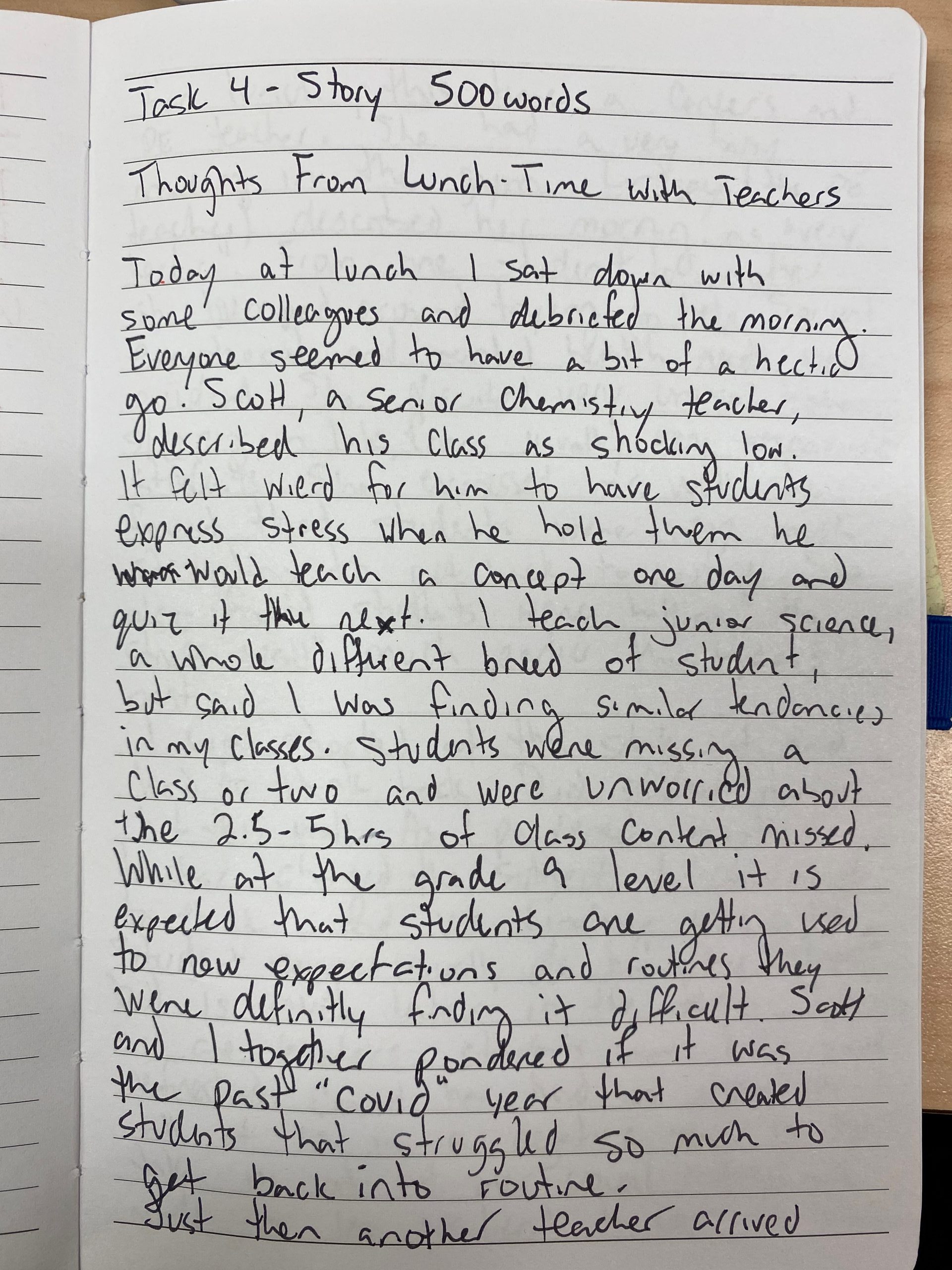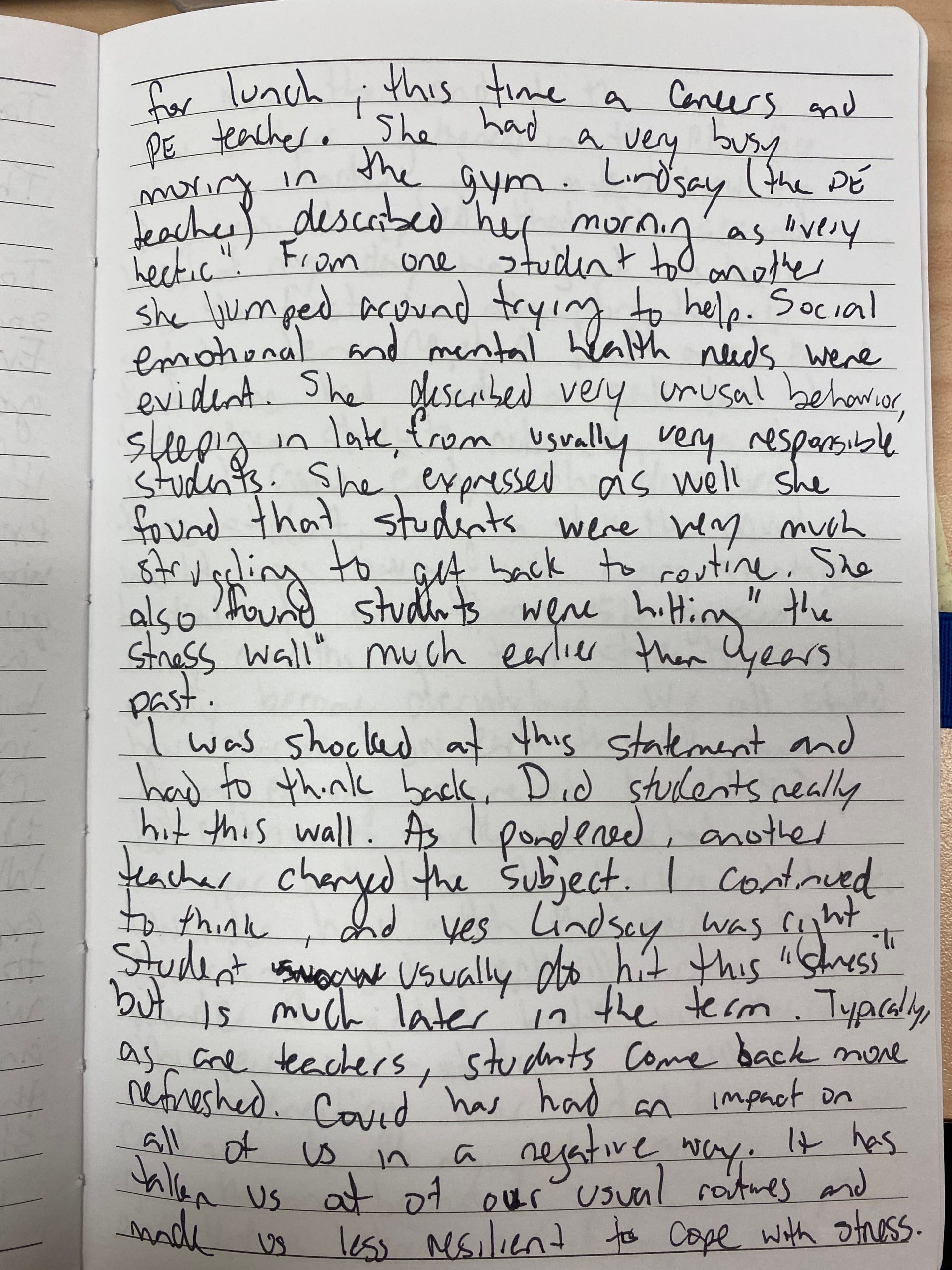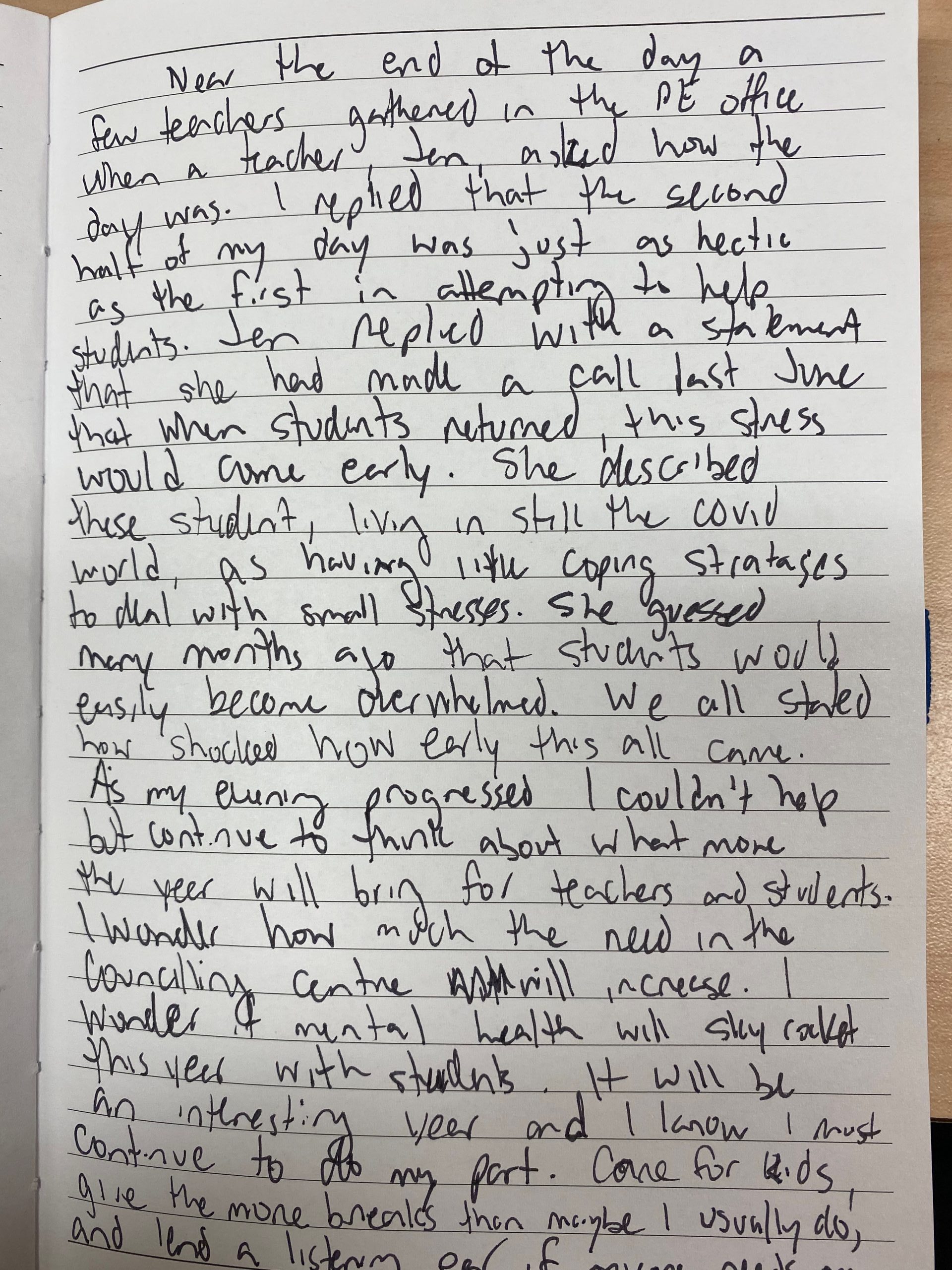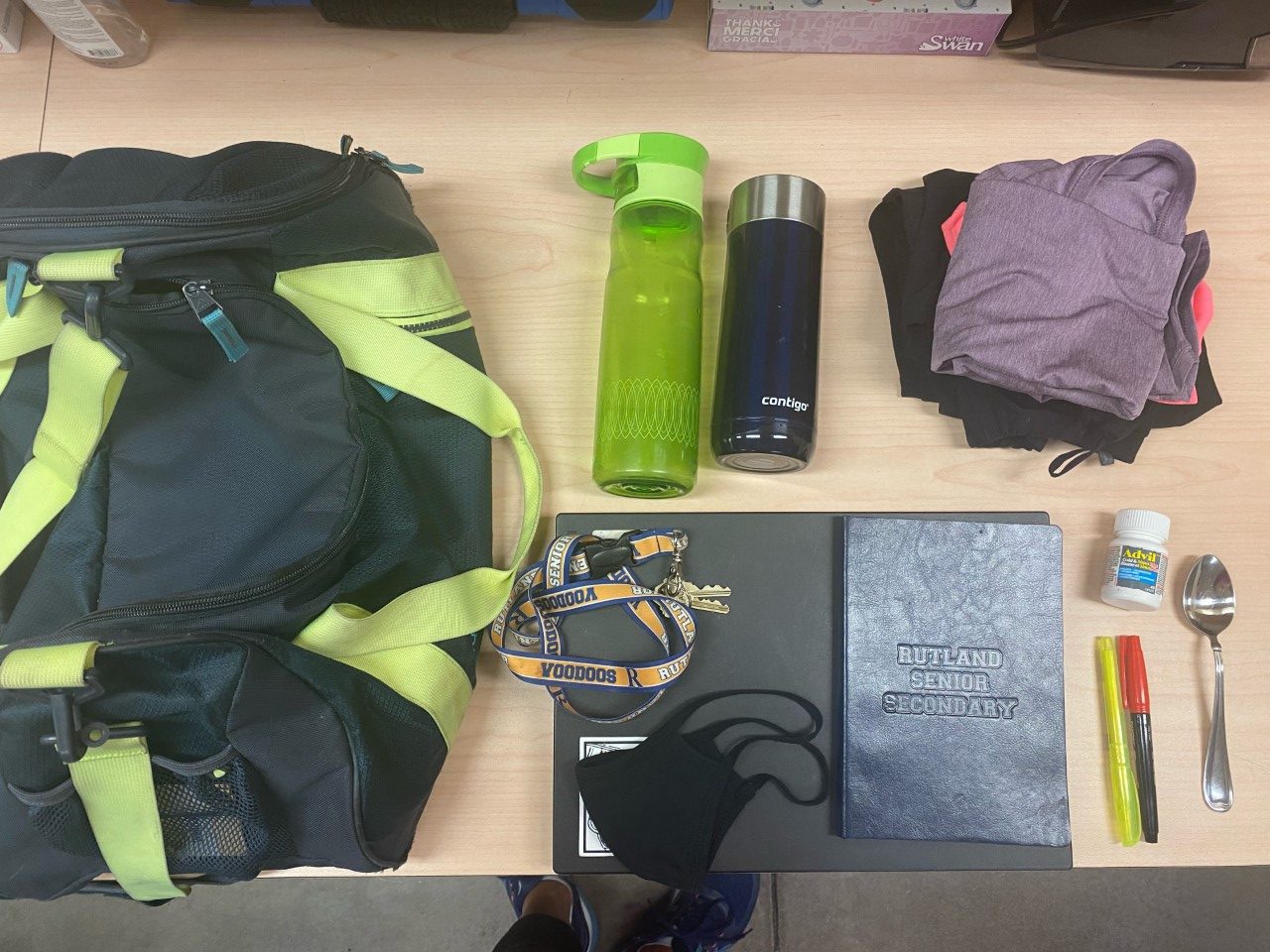My Story Using Google Docs Voice to Text
Prelude: Please note that my story does not have any punctuation as I did not know it was a requirement to verbally state the punctuation. Below is the unedited version of this story
So often at the beginning of a course I’d like to tell the kids up a story that kind of represents a little bit about who I am and how it relates to some of the important goals of the course recently I have started a woman’s PE course we’re encouraging females to take part next loss and learn to stay fit and kind of stays fit after school 2 so that’s one of the biggest Parts about PE is that you need to teach these kids okay after high school we need to find something that you really love to do so that you can stay fit so I’ve been kind of racking my brain about just a story to tell them I’m to connect and so that’s the story that I’m just going to kind of Breeze through here in terms of like this is the speech that I would give them at the beginning of the course so story goes so I was really active in high school I play lots of sports and then going into University many of those Sports stops many of the activities that I did every day stopped and when you when you go to university when life changes from that moment at the end of high school and to kind of other starting a career or going into University College your routine change and different things stop so I’d gone from playing soccer field hockey basketball through the seasons at in high school to really not doing anything in my first year I found a club to join field hockey clubs in Kelowna to join and that got me out once a week and that was pretty much my only physical activity and I noticed that the start of University that I’d really gotten pretty out of shape really fast you just not as active as you are when you’re going every day to school and University itself really lends itself to sitting and reading or writing things that a computer and not being as active as you’d like to be truly important to have to to fit that in and find the thing that work for you I’m on my second year and University I had transferred from ubco which would have been home to you Vic and I had was staying on housing on campus and I needed to meet friends and I needed a way to stay fit and I thought that’s what I could do that was by joining an intramural team and so I think that that’s a great thing if you’re able to do that and that’s why some of the things that we try here in PE or important so that if you want to join an interview team that you have a sport that you kind of played before that you enjoyed playing and even if you’re not joining like the higher levels that you’re just doing like a little Recreation and Leisure team that you capable of of joining in for something like that so whether it soccer or badminton or tennis or hockey or volleyball something that you enjoy doing I’m so that you can socially meet people and stay fat so I had joined when you go to university of your on different buildings in campus and then each building for intramurals will have like a team until I joined the cluster housing which was what it’s called at UVic soccer team and so I went out there and they played and I got to meet a ton of people that kind of lived around me and it was really great it was a great way to kind of stay fit it wasn’t super competitive or anything like that but it’s socially got me out there and it was at a good way to to meet people and stay fit as University progressed I kind of got out of this a long story short I ended up joining a club field hockey team for the city Victoria’s well and then somehow the zip code to end up see me I end up playing at field hockey for you Vic which taught me a lot of the basic knowledge that I have today about staying fit and doing workouts and going to the gym, do I have quite a bit of knowledge that I’m I’m pretty thankful to have that I don’t think without that opportunity it would have had a chance to do that and so I have this knowledge about how to go to the gym and do a proper work out and stay fit and I have the knowledge about how you can do those same type of workouts at home if going to the gym is an option or you can’t afford it financially and actually remember by my final year on playing field hockey for you back so then my fifth year of school I was actually designing and creating All Season workouts for my teammates to join in on because some of them really didn’t like going to the gym but we’re looking for a way to stay fit and then so as a kind of soon-to-be PE teacher I’m looking to kind of create these workouts I did some fun stuff just like in a jam with minimal equipment or no equipment at all was the easiest and so I got a lot of practice at it and this is a knowledge I’d like to share so that when you finish school when you are no longer as active as you are because you’re something in life is Michigan University redo working full-time that you know how to stay fit so that you feel good cuz I think we all know the benefits of a staying fit makes you happier makes you less tired I make you feel good about yourself so that’s my goal in this course is to share with you that knowledge about how to stay fit finding things you loves to that after school you can beat that
Voice to Text Story Analysis
After reading the script that was recorded of my story, I was filled with laughter and confusion. The story I told is near incomprehensible. It appears to jump all over the place and the lack of correct pronouns is very misleading throughout the entire story. One of the biggest errors of the written story is the lack of punctuation. Who knew you had to verbalize punctuation in voice to text records? I clearly did not and perhaps that is indicative of how often I use this writing tool. Stories to me are very personal. If they are not told orally, they require careful punctuation to ensure the reader understands the flow of the story and where emphasis is used. This text deviates from the conventions of written English with its consistent incorrect grammar and punctuation. One area of strength for this talk to text program, in regards to conventions of written English, is the fact that there is rarely a spelling error. While there are no spelling errors, that does not mean that the correct word was used in the first place. For example, a glaring error in my story about striving for lifelong physical activity and fitness was the use of the word “fat” for “fit”. This was truly incorrect and increases the confusion of the story.
There are many things that are “right” within the text. Most words are correctly used, but without punctuation it is hard to understand the story. As sentence structure falls apart, so does the understanding of the story. Some of the most glaring “wrongs” from the story are the incorrect pronouns that are used when the technology program (in my case Google Docs talk to text) is unsure what to write. For example, using the words “you VIC” instead of “UVIC” would lead to a reader being very confused. This “mistake” of an incorrect pronoun is used multiple times throughout the story. As well, there are often times when capital letters are used incorrectly, giving the idea that there is a specific place or name being discussed, when in fact there is not. It is so interesting how the slightest grammatical change can create misunderstandings and or add something to the story that was not intended to be included.
If I had I scripted the story, I do think the text would have had more flow and would have made more sense. With the lack of punctuation, a scripted story would allow for more organized thoughts. Sentences could have connected better which would make the story more easily understood. As well, in an unscripted story, I had to think about my next sentence or how I might want to phrase something. Instead of not speaking I often used the word “so”. The inclusion of this word repeatedly takes away from the story’s flow and is somewhat distracting to the reader. With a script, I would not have included these sentence-connecting words.
Oral storytelling differs far from written storytelling. The feeling, emphasis, and notes of importance are lost to the reader. The reader must interpret, based on punctuation, how the story flows and what is stressed or highlighted. This is impossible to include unless you are the original author of the story or have heard the story from the original author. “Oral Cultures indeed produce powerful and beautiful verbal performances of high artistic and human worth, which are no longer even possible once writing has taken possession” (Ong, 2002, p.14). Oral storytelling is an artform that evokes emotions and feelings. The written English language does not possess the ability to include this artform in its written format.
When oral stories are transcribed into written form, much is lost. In utilizing this talk to text technology tool, I feel as though even more was lost. My story was meant to express my passion for physical activity and lifelong fitness. After reading the written form of my story there is no passion that emulates from it. There is no expression of eagerness or stress on the importance of the topic I discussed. In this case, technology failed to enhance the story. Technology is multifaceted and, while it was not successful in this form, that is not to say that it doesn’t have the ability to make my story better. Schmandt-Besserat (2009) argues that multimedia elements can be embedded in text and provide new opportunities for communicating and sharing information or stories. If I were to add other elements of technology to my story, it could possibly enhance the feelings of passion and importance I wanted to express. Pictures, audio clips, videos, or interactive pieces of technology could evoke the feelings I wanted to express, but I firmly stand on my point that nothing can replace an oral story told by the author themselves. The most true expression can only ever be stated orally.
Ong, Walter, J. Taylor & Francis eBooks – CRKN, & CRKN MiL Collection. (2002). Orality and literacy: The technologizing of the word. New York; London: Routledge.
Schmandt-Besserat, D. (2009). “Origins and Forms of Writing.” In Bazerman, C. (Ed.). Handbook of research on writing: History, society, school, individual, text. New York, NY: Routledge.

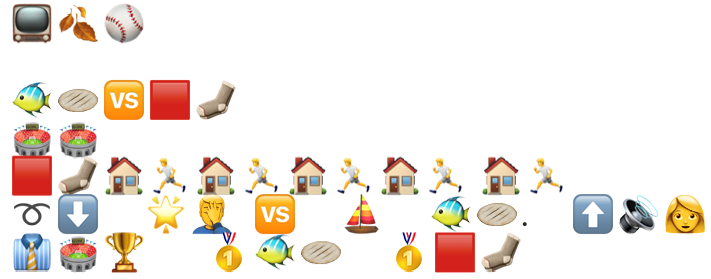 I found this task extremely challenging as using emojis is not something I utilize often. Since I am not familiar with this “language” of emoji’s, I found it hard to predict which images would be available. For example, I assumed that a baseball bat would be a common image that could be found. Unfortunately, the only bats available were an animal bat and a cricket bat. As I attempted to put together my title and plot, I found I relied more on words rather than syllables or ideas to represent the text I was trying to convey. I found these emojis much easier to find.
I found this task extremely challenging as using emojis is not something I utilize often. Since I am not familiar with this “language” of emoji’s, I found it hard to predict which images would be available. For example, I assumed that a baseball bat would be a common image that could be found. Unfortunately, the only bats available were an animal bat and a cricket bat. As I attempted to put together my title and plot, I found I relied more on words rather than syllables or ideas to represent the text I was trying to convey. I found these emojis much easier to find.